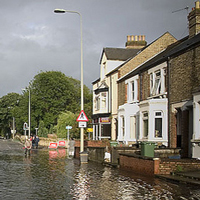What classifies as a disaster for one company can be very different to another. If a small accountancy firm fails to back up its data, and has no plans for keeping that data secure in the event of a fire, it could be taken to court for failure to comply with data storage regulations affecting financial organisations.
Recent research carried out by the Confederation of British Industry (CBI) shows that, despite the fact that 60% of medium-sized firms currently use the internet in their supply chains, less than half of these have no security to cope with online attacks and no backup plans.
Having access to business critical information at all times is imperitative. Many companies have unfortunately learned from experience that even short outages can have a significant effect on revenue, cashflow and customer satisfaction.
Recent research, conducted by SunGard Availability Services in conjunction with YouGov and supported by the CBI, shows that only a third of managers of SMEs in the UK are taking steps to ensure that their business can continue to operate normally under any circumstances.
But as consumers, they are far less understanding when a product or service is unavailable. Less than 10% of those surveyed would wait for a product to become available at a later date if they found it to be out of stock when visiting a retailer; while more than 80% would select another product or go to a different retailer.
Stephen Rankin, regional director of the CBI said: "Business continuity planning should be a key area of concern for small business owners. Companies cannot afford to be out of action for any extended period of time as they risk losing customers in the short term and damaging their reputation in the longer term. This survey highlights the fact that some businesses have a long way to go in getting their plans up to scratch."
There are many aspects to an effective business continuity plan. Employers need to think about backing up their data so it is never lost, and having access to alternative locations should their work premises be affected by fire or flood. They also need to have plans in place covering employees. For example, do they work from home if they cannot gain access to their building, or is transport immediately provided to the backup site?
Small businesses should look upon business continuity planning as a way of increasing productivity, organisational efficiency and actually gaining a competitive advantage. Business continuity has moved beyond just thinking of how to recover after a disaster and towards the importance of information availability - the process of keeping people connected to the information they need at all times. It can be the difference between loss of profits, operations, customers and reputation - or the integrity and survival of the business.
Keith Tilley is managing director of SunGard Availability Services. For more information visit www.sungard.com






